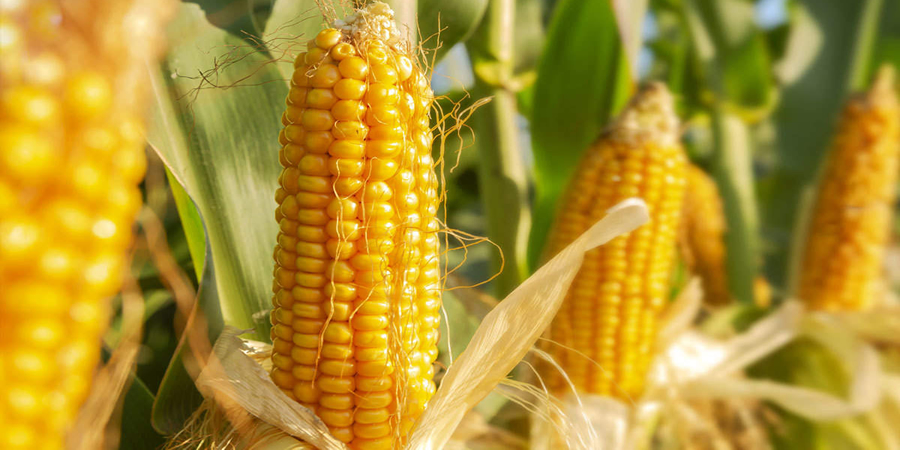September 6, 2023
Brazil overtakes US as leading corn exporter, signalling long-term industry shift

For over 50 years, the US has held a dominant position as the world's foremost corn exporter, but in the agricultural year ending August 31, the US ceded its corn-exporting supremacy to Brazil, and the prospect of reclaiming this title seems increasingly uncertain, Yahoo! Finance reported.
Data from the US Department of Agriculture showed that in the 2023 harvest year, the US will contribute approximately 23% of global corn exports, while Brazil will command nearly 32%. Forecasts for the 2024 planting year, commencing on September 1, also indicate Brazil maintaining its lead. This marks a significant departure from historical data, with the US typically reigning as the top corn exporter.
This dethroning in corn exports echoes a trend observed in other agricultural sectors. Over the past decade, the US has surrendered its premier positions in both soybean and wheat exports. Brazil definitively claimed the top spot for soybeans in 2013, while the US's wheat dominance was overtaken, first by the European Union and then by Russia.
Multiple factors underpin this shift. The escalating costs of farming and a shortage of available farmland, the lingering repercussions of former US President Donald Trump's trade dispute with China, and the strength of the US dollar. Presently, the US represents about one-third of global soybean exports, trailing Brazil. In the wheat sector, it has descended to fifth place, securing only a single-digit share of the international market.
This continuous decline and eroding competitiveness in US agriculture mark a significant departure for a country that has historically wielded food as a geopolitical instrument. During the height of the Cold War, the US employed its abundant food supplies to counter the spread of communism in developing nations, even providing a quarter of its wheat to Russia following a crop failure in the early 1970s.
This shift in corn exports aligns with long-standing trends. The US government has encouraged the utilisation of domestically grown corn for ethanol production, constituting approximately 40% of US corn usage. However, the transition to electric vehicles poses a risk to ethanol demand. When mills reduce their purchases, the US can store corn crops for extended periods in massive silos, awaiting favourable market conditions.
Krista Swanson, an economist at the National Corn Growers Association, attributed Brazil's recent advantage in corn exports to a combination of factors, including a substantial crop in Brazil, a US shortfall, and a favourable exchange rate for Brazil. She hopes this situation is temporary.
Numerous challenges persist for the US corn industry when competing on a global scale. Elevated labour and transportation costs, exacerbated by an ongoing drought on the Mississippi River, hinder the movement of US Midwest crops, impacting their competitiveness. Brazil has also invested in enhancing its ports and infrastructure, mitigating previous logistical shortcomings. Furthermore, Brazil's warmer climate allows for two corn harvests annually, providing a competitive edge over the US. Even if the US momentarily regains the top spot in corn exports, its long-term prospects of reclaiming the crown appear limited in light of these challenges compared to Brazil.
This transformation represents a significant shift for a nation that once celebrated its "amber waves of grain." At its peak, the US exported 78% of its annual wheat production, 54% of soybeans, and 45% of its corn. Projections for 2024 anticipate these figures slipping to 40%, 43%, and 14%, respectively, marking a reduced share of global crop exports overall.
Notably, Brazil's ascent as a major agricultural supplier comes without the political baggage often associated with the US. China, a key agricultural purchaser, entered an agreement with Brazil last year to reduce its dependence on the US and replace supplies from Ukraine, disrupted by the Russian invasion. While China remains a significant buyer of American crops, it also receives millions of tonnes of Brazilian crops annually. In July, China ranked as Brazil's leading destination for corn shipments, a stark contrast to the same period the previous year.
Even Pay, an agriculture analyst at Trivium China, said that Brazil's geopolitical position and its need for Chinese investment in infrastructure and technology have solidified their relationship, giving China more confidence to trade with Brazil even if US-China relations deteriorate. US agriculture may find itself at a disadvantage, as prospects for improved diplomatic ties between the US and China appear uncertain.
- Yahoo! Finance










